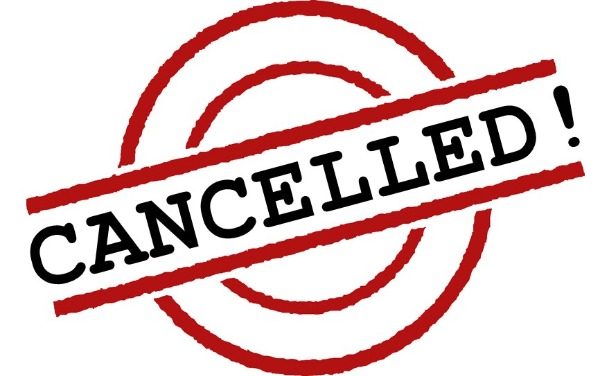Want to Buy My DVDS?
 I don't think it would be considered "cancel culture," but year-to-year we see technologies get canceled. This past week, my wife asked me to take the DVDs I have on three shelves and "either put them somewhere else - or get rid of them."
I don't think it would be considered "cancel culture," but year-to-year we see technologies get canceled. This past week, my wife asked me to take the DVDs I have on three shelves and "either put them somewhere else - or get rid of them."
Get rid of them? But these are a lot of my favorite films and TV shows. And surely, some must be "collectible" and worth something. "Then sell them," says my practical wife, who says the same about my vinyl record albums and books. My sons, now in their 30s, agree. Their videos, music and books are all digital and take up no shelf space. That's part of what I once termed as a "disconnected" culture and generation.
Remember DVDs? They might have been a gift you gave for a birthday, Hanukkah, Christmas or bought for your own pleasure. Do they still exist? Yes. Are people still buying them? Not really, but they did get a pandemic bump in sales this year.
"The top title for the weeks ended April 25 and May 2 [2020] was Bad Boys for Life, and for May 9 it was Bloodshot and earlier hit releases such as Disney’s Star Wars: The Rise of Skywalker and Sony’s Jumanji: The Next Level hung on so that this was the first time DVDs saw yearly gains two weeks in a row since April 2014, when Frozen was driving industry sales. It’s the first three-week gain since late-August 2012, when The Hunger Games and Battleship were the top titles."
I was buying discs for films that I would actually rewatch and that rarely appeared on TV (pre-streaming). Some of them were films I had previously bought on VHS (a practice my wife could not understand). I did watch them. Not a lot, but I did. And I loaned them to friends. "You've never seen The Graduate, One Flew Over the Cuckoo's Nest, Citizen Kane... ?"
The last DVD player I bought had "smart" features that my dumb TV at that time didn't have so that I could watch Netflix. But streaming video services became the thing and when I dropped by the original Netflix DVD mail service for streaming the player got dusty with lack of use. My sons had given me some TV series I love on discs as gifts (Seinfeld, 30 Rock, Taxi) because if they were available on broadcast TV they had commercials and you had no control over which episode to watch. Plus most DVDs had additional features that were interesting and not available elsewhere.
Now, those box sets are also gathering dust as entire runs of series like Seinfeld are available streaming and you can pick whatever episode you want to watch.
I subscribed to Netflix’s DVD-by-mail service early-on and it was pretty great. Of course, waiting for that next movie or episodes of a series was tough. Those red envelopes still exist but Netflix doesn't want you waiting for the mailperson. They want you to binge that whole season of Schitt's Creek today and just go from one video to the next.
There's a lot of streaming service competition. HBO, the grandpa of cable movie channels, has HBO Max and will be getting in 2021 Warner Brother films the same day that they hit theaters (assuming theaters are open again). Studios, like Disney, are launching streaming channels along with Hulu, Showtime, Amazon, and broadcast dinosaurs like CBS (with its Peacock).
DVDs and services like DVD.com are also a resource for people in areas with poor broadband access. The pandemic and online learning made it clearer than ever that access to fast Internet is NOT ubiquitous in America.
I was surprised to find that DVDs are still profitable. Netflix still has about two million DVD customers and made $37 million in profits in the 4th quarter of 2019, which breaks down to $17.34/user. Netflix’s streaming service sees a return of $13.09/US subscriber. (I'm sure those numbers changed in 2020 but I couldn't find an update.)
When I was involved with creating online learning at NJIT starting in 2000, we were sending out VHS tapes to students, moved to CDs, then to DVDs, and by the time I left more than a decade later, it was streaming.
There is another concern that as DVD catalogs and production disappears, so will some content disappear, perhaps forever.
 The phrase "cancel culture" is showing up in the news more frequently. Cancel culture (or call-out culture) is the term sometimes used when someone is shut out of a social or professional group. This could be either online (particularly on social media), in the real world, or both. Those who are subject to this ostracism are said to be "canceled."
The phrase "cancel culture" is showing up in the news more frequently. Cancel culture (or call-out culture) is the term sometimes used when someone is shut out of a social or professional group. This could be either online (particularly on social media), in the real world, or both. Those who are subject to this ostracism are said to be "canceled." The term “Web 2.0” was popularized by Tim O'Reilly and Dale Dougherty at the O'Reilly Media Web 2.0 Conference in late 2004.
The term “Web 2.0” was popularized by Tim O'Reilly and Dale Dougherty at the O'Reilly Media Web 2.0 Conference in late 2004. 